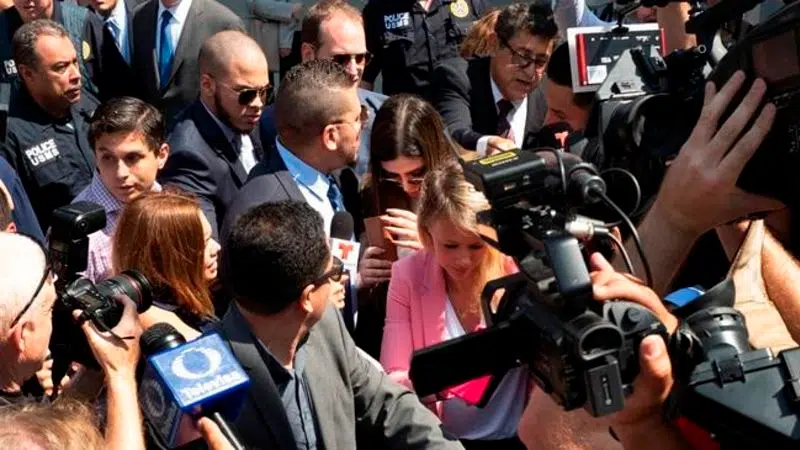
Joaquin ‘El Chapo’ Guzman sentenced to life in prison
NEW YORK — Mexican drug kingpin and escape artist Joaquin “El Chapo” Guzman was sentenced Wednesday to life behind bars in a U.S. prison, expressing no remorse over his conviction for a massive drug conspiracy that spread murder and mayhem for more than two decades.
Instead, a defiant Guzman took a parting shot at a judge in federal court in Brooklyn by accusing him of making a mockery of the U.S. justice system in refusing to order a new trial based on unsubstantiated allegations of juror misconduct.
“My case was stained and you denied me a fair trial when the whole world was watching,” Guzman said through an interpreter.
Experts say he will likely wind up at the federal government’s Supermax prison in Florence, Colorado, where inmates are held alone for 23 hours a day and have little human interaction.


